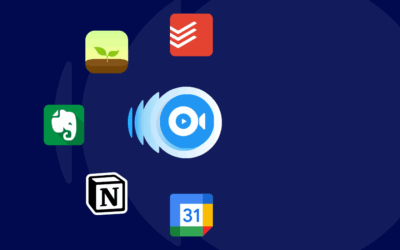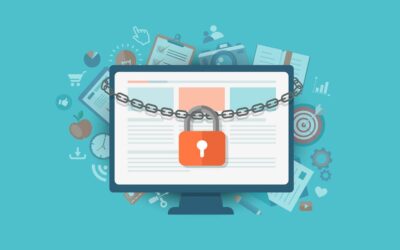How to Choose the Right Antivirus Software in 2025

Choosing the right antivirus software in 2025 is more important than ever. As cyber threats continue to evolve, relying solely on built-in protections or free tools might not be enough. Whether you’re using a Windows PC, Mac, or mobile device, having strong antivirus protection helps safeguard your personal information, prevent system damage, and block online threats like phishing, ransomware, spyware, and other forms of malware.
There are hundreds of antivirus options available today, and choosing the right one can feel overwhelming. The good news is that with the right knowledge, you can make a smart and secure decision. In this guide, we’ll help you understand what features matter, what types of protection you should look for, and how to choose the best antivirus for your needs in 2025.
Why Antivirus Software Still Matters in 2025
Some users believe antivirus software is no longer necessary due to the rise of built-in security tools like Windows Defender or macOS Gatekeeper. While these native solutions do offer a solid base layer of protection, they are not always equipped to handle complex or targeted threats. In 2025, cybercriminals are more sophisticated, using AI and automation to launch large-scale phishing attacks, social engineering, and zero-day malware.
Antivirus software goes beyond basic protection. It provides advanced threat detection, ransomware protection, secure browsing, and firewall controls. It also helps ensure your private data isn’t being leaked or sold on the dark web. With the growth of remote work, online banking, cryptocurrency use, and virtual collaboration, comprehensive antivirus software has become a critical tool for both individuals and businesses.
Key Features to Look For
When evaluating antivirus software in 2025, look for these essential features:
-
Real-Time Threat Detection: This means the software actively scans your device and blocks threats as they happen, not just during scheduled scans.
-
Ransomware Protection: Ransomware attacks lock or encrypt your files and demand payment. Modern antivirus solutions can detect and block these attacks before they cause damage.
-
Web and Email Protection: Many threats now come from malicious links in emails or infected websites. A good antivirus should warn you about suspicious links, phishing attempts, and insecure websites.
-
Firewall and Network Monitoring: A built-in firewall monitors incoming and outgoing traffic, helping to prevent unauthorized access to your system.
-
Cloud-Based Updates: As new threats are discovered every day, antivirus software must be able to update in real-time using cloud intelligence to stay ahead of attackers.
-
Privacy and Identity Protection: Many premium antivirus tools offer dark web monitoring, password managers, and even VPNs to help protect your identity online.
-
Cross-Platform Support: If you use multiple devices like a Windows laptop, Android phone, or MacBook, having a unified antivirus solution across platforms keeps everything protected under one account.
Top Antivirus Software Recommendations for 2025
While the best antivirus may vary depending on your specific needs, here are some trusted options based on performance, features, and reputation:
-
Bitdefender Total Security: Known for its excellent malware protection, lightweight performance, and features like webcam protection and anti-tracker tools.
-
Norton 360: Offers a complete package including a VPN, cloud backup, identity protection, and real-time threat detection. Ideal for families and professionals.
-
Kaspersky Premium Security: Offers advanced tools for privacy, secure payment protection, and encrypted browsing. Still one of the most trusted engines for malware detection.
-
McAfee+ Advanced: A strong contender with good multi-device support, password manager, identity monitoring, and a clean interface.
-
ESET Smart Security Premium: Ideal for advanced users who want strong performance and customizable options without bloatware.
Free vs Paid Antivirus Software
While there are many free antivirus options such as Avast Free Antivirus or AVG, they usually offer only basic protection. These can be good for low-risk users or secondary devices, but they may show ads or push you to upgrade. Paid antivirus software often includes advanced features, better support, and more frequent updates, offering a more reliable and secure experience overall.
If your budget allows, investing in a premium solution gives you peace of mind, especially when storing sensitive files, using online banking, or working remotely. Many paid plans also cover multiple devices and offer extra security features like parental controls, VPN access, and encrypted file storage.
How to Decide Which One Is Right for You
Before choosing an antivirus, ask yourself these questions:
-
How many devices do I need to protect?
-
Am I storing sensitive data or doing online banking?
-
Do I want extra tools like a VPN or password manager?
-
How tech-savvy am I? Do I prefer simple interfaces or advanced control?
-
What’s my budget?
Once you have these answers, compare the top antivirus solutions based on features, pricing, device compatibility, and support. Most companies offer a free trial or money-back guarantee, so take advantage of that to test the software before committing.
Conclusion
Choosing the right antivirus software in 2025 is not just about avoiding viruses—it’s about ensuring your digital safety in a connected world full of risks. With more work, communication, and finance happening online, robust antivirus protection is a smart investment. Whether you need basic coverage or an all-in-one security suite, there’s an antivirus solution that fits your needs and budget. Take the time to evaluate your options, and make digital safety a priority this year and beyond.
















